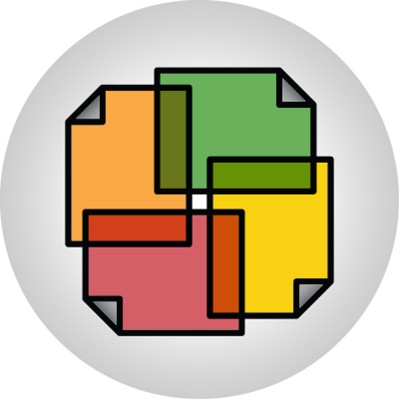 SEARCH
SEARCHProduct successfully added to your shopping cart
There are 0 items in your cart. There is 1 item in your cart.
Authors: Sean T. Hannah & Bruce J. Avolio
Organizations are dynamic and complex, creating a broad range of challenges for leaders. To meet these demands, leaders must not only have sufficient knowledge, skills and abilities, but also the efficacy (confidence) needed to successfully employ those capabilities across dynamic and changing contexts.
The Leader's Efficacy Questionnaire (LEQ) is based on Leader Self and Means Efficacy Theory (see references) and is unique because it captures both leaders' self-efficacy, the confidence individuals have in their own capabilities to lead, as well as leaders' beliefs in the extent that their peers, senior leaders, resources and other means in their environment will support their leadership: means efficacy. That is, personal self-efficacy is only half of the leader efficacy story - leaders must also generate confidence that their context will support their performance as a leader. Research has shown that means efficacy operates along with self-efficacy to separately and distinctly influence performance - the LEQ captures both.
Copyright © 2013 by Sean T. Hannah & Bruce J. Avolio
- Buy It
- Sample Items
- Product Specs
- Translations
- References and more
- Related Products
- Transform Survey Hosting: Multi-rater Form$8.80Minimum purchase of 10. Minimum purchase quantity 10 enables you to invite 10 participants, plus their raters, to the 360-style LEQ assessment. Online administration via our Transform™ system includes data collection with raw scale scores by participant and rater. Customization services are available.In Stock
- Transform Survey Hosting: Self Form (Data)$2.75Minimum purchase of 20. Allows you to administer the LEQ Self Form as an online survey using Mind Garden's Transform™ System. Includes data collection: data file with participants' raw data and raw scale scores. Customization services are available.In Stock
- License to Administer$2.75Minimum purchase of 50. Allows you to administer the LEQ as an online survey via a non-Mind Garden survey system or as a paper and pencil survey. The downloadable PDF file includes one copy of the LEQ, scoring key, and permission to administer the LEQ up to the quantity purchased. The PDF is non-refundable.In Stock
- Research Permission$0.00The authors are making the LEQ available to researchers who meet specific conditions, i.e., for use only in non-commercial research. Not for use in consulting, training, or similar function; not for use in profit-seeking or other financial or commercial purposes.In Stock
Features of the LEQ
Purpose: Measure leader self-efficacy and belief in the extent that those with whom they interact will support their leadership
Length: 22 items
Average completion time: 5-10 minutes
Target population: Adults
Administration For individual or group administration
Uses of the LEQ
- Leadership research
- Leadership assessment and development
Scales
Empirical research on the LEQ shows that leader efficacy is comprised of three components (two self-efficacy and one means-efficacy) and there is a scale in the LEQ for each:
Leader Action Self-Efficacy
Leaders' perceived capability to effectively execute various critical leader actions, such as motivating, coaching and inspiring followers, and getting followers to identify with the organization and its goals and vision.
Leader Self-Regulation Efficacy
Leaders' perceived capability to (a) think through complex leadership situations, interpret their followers and the context, and generate novel and effective solutions to leadership problems; coupled with (b) the ability to motivate oneself to enact those solutions using effective leadership with followers.
Leader Means Efficacy
Leaders' perceptions that they can draw upon others in their work environment (peers, senior leaders, followers) to enhance their leadership and that the organization's policies and resources can be leveraged to impact their leadership.
Based on these three components, Leader Self and Means Efficacy, as captured by the LEQ, is defined as follows: Leaders' beliefs in their perceived capabilities to organize the psychological capabilities, motivation, means, collective resources, and courses of action required to attain effective, sustainable performance across their leadership roles, demands, and contexts.
For Non-Commercial Unsupported Research, please order the LEQ Research Permission.
If you are unable to find the translation you need, you can request permission to make a translation.
Available with LEQ License to Administer:
These translations are available free of charge with your purchase of the license. Also available with LEQ Research Permission. Translations are provided in a separate pdf-format file. Select the language from the Translation drop-down list on the product page. Need multiple translations? Contact us.
- Arabic
- Chinese-Cantonese - Self Form only
- Chinese-Mandarin - Self Form only
- Dutch--Belgium - Self Form only
- Farsi
- German--Switzerland - Self Form only
- Indonesian
- Japanese - Self Form only
- Korean - Self Form only
- Spanish - Self Form only
- Thai - Self Form only
- Turkish - Self Form only
- Vietnamese - Self Form only
No translations available with LEQ Transform™ Survey Hosting.
Note: We cannot assure translation quality — many are made by individual researchers and we are not necessarily familiar with the particular language or dialect. Some of the translations are partial and typically do not have validation data. Basically, we offer whatever is available to facilitate your work.
Selected References
The theoretical basis and empirical testing of the LEQ:
Hannah, S., Avolio, B. J., Chan, A., & Walumbwa, F. (2012). Leader self and means efficacy: A multi-component approach. Organizational Behavior and Human Decision Processes, 118, 143-161.
Hannah, S., Avolio, B. J., Luthans, F., & Harms, P. (2008). Leadership efficacy: Review and future directions. Leadership Quarterly, 19, 669-692.
Hannah, S. T., & Luthans, F. (2008). A cognitive affective processing explanation of positive leadership: Toward theoretical understanding of the role of psychological capital. In R.H. Humphrey (Ed.) Affect and Emotion: New Directions in Management Theory and Research, Volume 7 of Research in Management (pp. 95-134). Charlotte, NC: Info Age Publishing.
Leader efficacy and leader developmental readiness:
Avolio, B. J., & Hannah, S. (2009). Developmental readiness: Accelerating leader development. Consulting Psychology Journal, 60, 331-347.
Avolio, B. J., & Hannah, S. (2009). Leader developmental readiness. Industrial and Organizational Psychology: Perspectives on Science and Practice, 2, 284-287.
Hannah, S., & Avolio, B. J. (2010). Ready or not: How do we accelerate the developmental readiness of leaders? Journal of Organizational Behavior, 31, 1181- 1187.
Studies evidencing the development of LEQ in leaders:
Hannah, S. T. (2006). Agentic Leadership Efficacy: Test of a new construct and model for leadership development and performance. University of Nebraska - Lincoln. Dissertation Abstracts International.
Lester, P., Hannah, S., Harms, P., Vogelgesang, G., & Avolio, B. J. (2011). Mentoring impact on leader efficacy development: A field experiment. Academy of Management Learning and Education, 10, 409-429.
More about the LEQ
Validity
The LEQ has been validated across seven diverse study samples and has been shown to predict important outcomes such as ratings of leader performance, enhanced motivation to lead others, and highly effective leadership styles, such as transformational leadership style. Research using the LEQ has demonstrated that leader self and means efficacy can be developed through mentoring programs and targeted leader development programs. No other leader efficacy measure has to date been validated across the full range of convergent, discriminant, and predictive validity tests required to properly validate a measure.
Links between Leader Efficacy Questionnaire and other Leadership Theories and Measures
Highly effective leadership requires that leaders be confident they can enact complex leadership styles and techniques. The LEQ has been shown to promote transformational leadership style, the most studied and validated leadership theory in the leadership literature (see the Multifactor Leadership Questionnaire (MLQ) as well as Authentic Leadership style (see the Authentic Leadership Questionnaire (ALQ).
Leader efficacy has also been identified as a primary factor that drives leader developmental readiness - the extent that a leader has the motivation and perceived ability to develop their leadership, and is thus "ready" for development. Organizations can use the LEQ as one indicator of developmental readiness in order to maximize employees' "return on development". The advantage of using this measure is that it focuses on readiness factors that can be developed. Leader self and means efficacy are states that can be changed and developed over time.
Self and 360 Ratings
The LEQ is often used as a self-report measure to assess leaders' perceptions of their own level of confidence in their capabilities. Yet, leadership is a positive influence process and perceptions of a leader's confidence will influence the extent that leader engenders respect and credibility from others. Few followers, for example, would want to follow a leader who appears to lack in confidence. If a leader doesn't display confidence in their own decisions and actions, how can others engender confidence in them? Thus, the LEQ is also available as a 360 rating measure, and leaders can compare how their self-ratings coincide with others' ratings of the level of leader efficacy they display.
Practical Use
The LEQ has been used in a variety of different leadership training programs with undergraduates on up to senior executive leaders in a broad range of industries. The concepts that are measured by the LEQ are relatively easy for participants to understand and grasp in terms of how they might go about developing their leadership styles and impact. We find that strategies for changing other aspects of leadership, e.g., to be more positive and inspiring, or focusing on improving each follower's development, are generally folded into what the participants evaluate as being their level of leader efficacy. Thus, development goals do not necessarily focus on developing ones leader self-efficacy in the isolation of connecting it to specific leadership styles and orientations measured by such instruments as the MLQ and ALQ. The same is true for means-efficacy as this construct is specific to the group one is leading, and the context in which those individuals are being led. Thus, as individuals think about how to enhance their means efficacy, they have to consider what they are trying to accomplish, with whom and the obstacles and enablers in their specific context.
Assesses personality traits with a full sphere of descriptive adjectives. The ACL provides a convenient, standardized method for recording and generating meaning for personal attributes of an individual. The ACL form can be used for self or observer ratings and Transform provides self or multi-rater assessment and reporting.
Measures the components that comprise Authentic Leadership: self awareness, transparency, ethical/moral behavior, and balanced processing.
Measures the core elements of interpersonal behavior in organizations: self, interaction and task.
A measure of moral potency that has been shown to predict various ethical attitudes and behaviors of individuals, and can be used for reflection of self and actions, and help in selecting goals and support to facilitate growth as a moral actor.
The benchmark measure of transformational leadership.
Combines the ALQ and MLQ surveys so you can conduct a single survey on Transform™ rather than two separate surveys. For purchase of reports or for PDF licenses, see each instrument separately.
Measures how often each member of the organization perceives the culture of their unit, department, or organization, to be using transformational or transactional leadership styles.
Measuring the Resource of Psychological Capital - Hope, Efficacy, Resilience and Optimism
Assessment of two theoretically derived, unique forms of psychological ownership: Preventative and Promotive.
Assesses the leadership style of a team. It represents an extension of transforming leadership definitions from the individual to the collective.
Measures a range of job behaviors and practices referring to beliefs in one's command of the social requirements necessary for success in the workplace.

 LOGIN
LOGIN  BLOG
BLOG
 CART
CART


